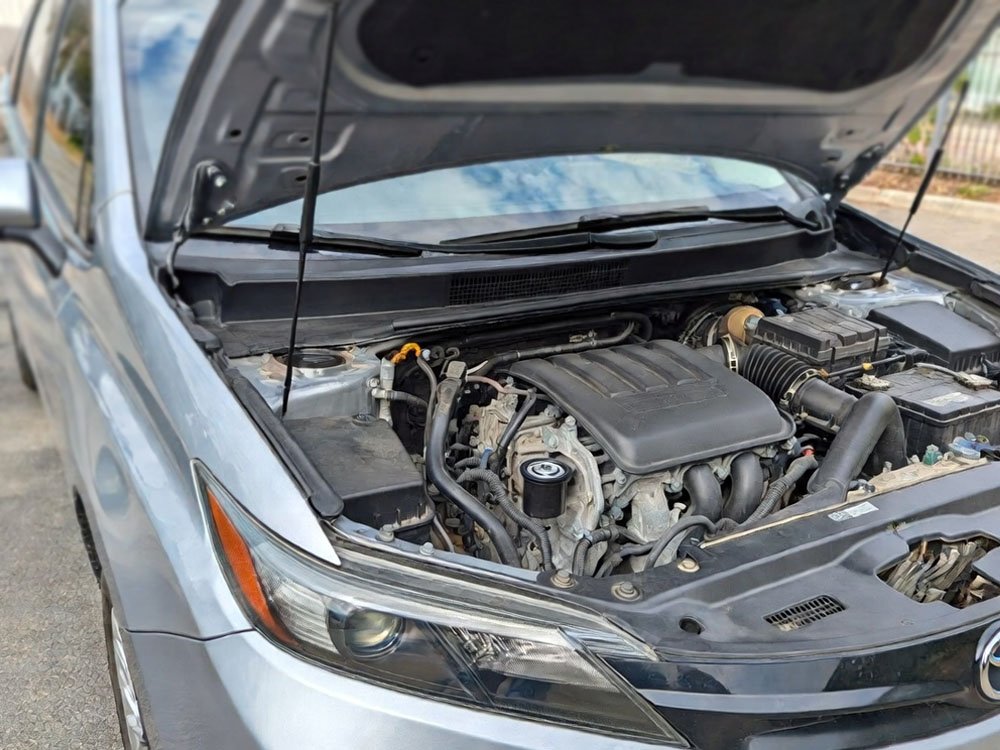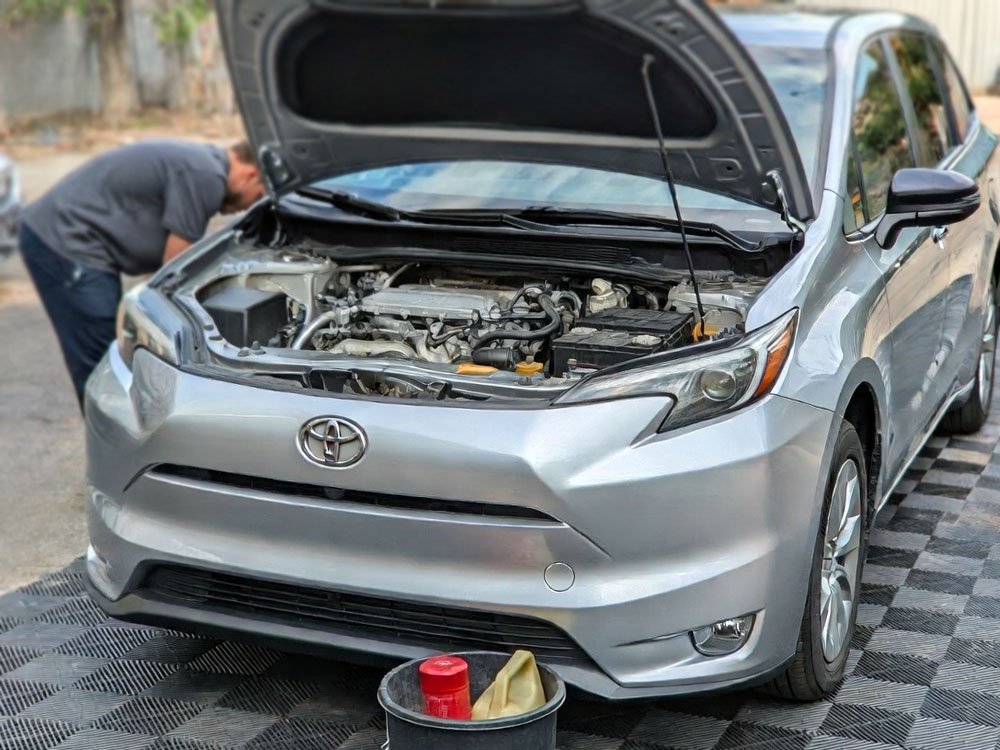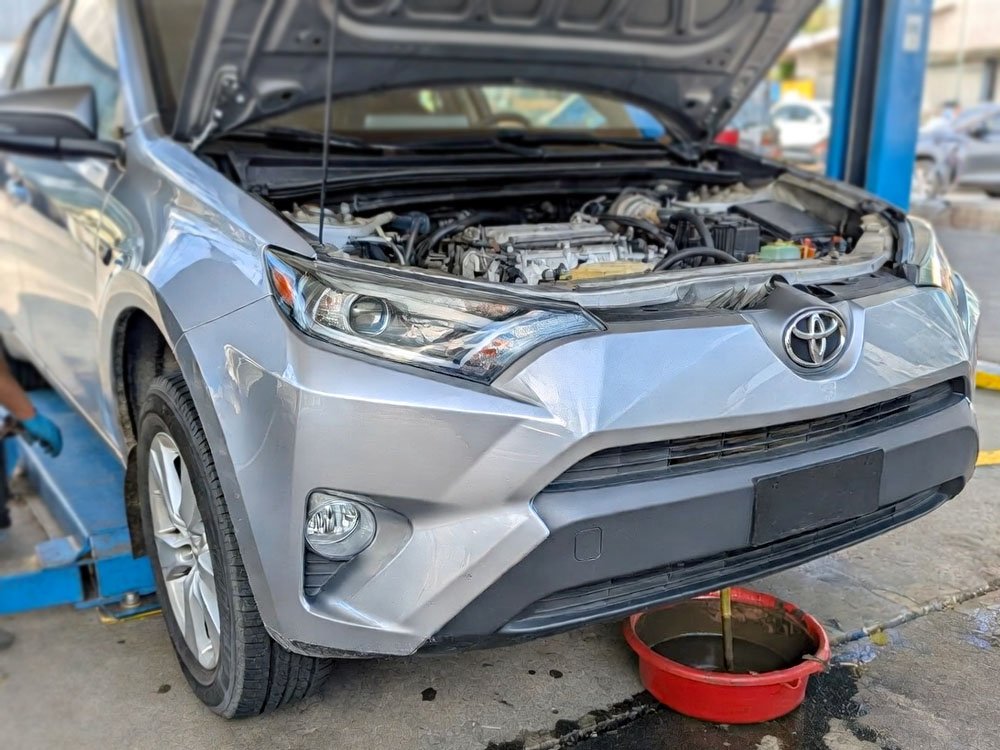As an Amazon Associate, I earn from qualifying purchases at no extra cost to you.
Can a Mechanic Refuse to Release Your Car: Know Your Rights
When you've taken your car in for repairs, the last thing you want to hear is that the mechanic is refusing to release it. Whether you're dealing with minor fixes or major engine repairs, you might wonder: Can they really do that? In this article, we'll explore everything you need to know about a mechanic's rights and your own when it comes to retrieving your vehicle.

Understanding Your Rights When It Comes to Car Repairs
Before diving into whether a mechanic can refuse to release your car, it's important to first understand your rights as a car owner when it comes to car repairs. The relationship between you and your mechanic is defined by a contract, whether written or verbal. This contract lays out the agreed-upon terms for the repair job, including the cost, time frame, and the scope of work. Once the mechanic has accepted your vehicle for repairs, both you and the shop are bound by these terms.
However, things can get tricky when issues arise, and the mechanic may refuse to release your car. What might cause this situation to occur? Can they do this legally, and what are your options for reclaiming your vehicle? Let's break it down step by step.
Why Would a Mechanic Refuse to Release Your Car?
There are several potential reasons why a mechanic might refuse to release your car. Some of these are legitimate, while others may be less so. Below are a few common situations that may lead to a refusal:
Outstanding Payment
One of the most common reasons a mechanic might refuse to release a car is because of unpaid bills. When a mechanic repairs your vehicle, they usually expect to be compensated for their work. If you've failed to pay for the services rendered, even if it’s due to a simple misunderstanding or dispute over charges, the mechanic may withhold the car until the payment is made. In many places, mechanics have a legal right to hold onto a vehicle if they haven't been paid, thanks to something known as a mechanic's lien.
Mechanics Lien
A mechanic's lien is a legal claim against your vehicle that ensures the mechanic can get paid for their work. When you drop off your car, you are essentially agreeing that the mechanic can place a lien on your vehicle if you fail to pay. If you refuse or neglect to pay the mechanic for the repairs, the lien can prevent you from taking your car home. This means the mechanic has a legal right to hold onto your car until the debt is settled.
While a mechanic's lien is an important tool for ensuring payment, there are strict rules in place about how it works. The mechanic must inform you about the lien and follow certain procedures before they can legally hold your vehicle. If the lien isn’t filed properly, you may have grounds to dispute it.
Work Not Completed or Incomplete Work
Another reason a mechanic might refuse to release your car is if they've started repairs and haven't yet completed them. Sometimes mechanics may refuse to release a vehicle if there's an issue with the quality of the work done. This can be due to safety concerns or because the vehicle is still in need of further repairs before it's safe to drive. For example, if the mechanic has partially repaired a brake system and the work isn't completed, they may hold onto your car until the job is finished to ensure you don’t drive away in a potentially unsafe vehicle.
Legal or Insurance Issues
Sometimes, there might be legal or insurance-related reasons that cause a mechanic to refuse the release of your vehicle. If your car was involved in an accident and insurance is involved, the mechanic may be bound by the terms of the insurance claim process. There could be delays in payment from the insurance company, which could result in the mechanic holding onto your car until they've received full compensation.
Additionally, if there are legal disputes over the ownership of the vehicle or other complications such as unpaid insurance premiums, the mechanic might withhold the car until all of these matters are resolved. These issues can be particularly complicated, so it's crucial to get legal advice if you find yourself in this situation.
Disputes Over Service Quality or Costs
A less common but still plausible situation is a dispute over the quality of service or the cost of repairs. If you feel the mechanic has overcharged you or did subpar work, you may refuse to pay for the service. In turn, the mechanic may refuse to release the vehicle until the dispute is resolved. In these cases, it's important to negotiate and try to reach a resolution before things escalate further.
It's often wise to keep clear communication with your mechanic and avoid misunderstandings about the scope of work and cost. If a situation like this arises, you may need to rely on mediation or legal action to resolve the dispute.
What Legal Rights Do You Have if a Mechanic Refuses to Release Your Car?
Now that we know the reasons a mechanic might refuse to release your car, let's take a look at the legal rights involved in these situations. As a vehicle owner, you do have certain rights to reclaim your car, but these rights depend on various factors, including the specific reason for the mechanic's refusal.
Mechanic's Lien Laws
As mentioned earlier, a mechanic's lien is one of the most common legal reasons a mechanic may refuse to release a car. Mechanics are entitled to hold onto a vehicle as collateral until the debt owed for repairs is paid. However, there are legal requirements that must be followed. These requirements may differ depending on your state or country, but they generally include the following:
- The mechanic must provide you with a written estimate of costs and a final bill.
- The mechanic must notify you of the lien, often in writing.
- If payment isn't made, the mechanic may have the right to sell your vehicle to recoup the costs, but only after giving you the proper amount of notice.
If you feel the lien is unjust or that the mechanic isn't following the proper procedures, you may be able to challenge the lien in court. Before taking that route, it's best to reach out to the mechanic to see if a resolution can be reached.
Consumer Protection Laws
In many states and countries, there are consumer protection laws that safeguard car owners in situations like this. For example, in some jurisdictions, mechanics are prohibited from holding onto your vehicle if they haven't provided a written estimate or if they've charged excessive or unexpected fees. If you believe a mechanic is violating consumer protection laws, you can file a complaint with the relevant regulatory authorities, such as a consumer protection agency or the Better Business Bureau (BBB).
Additionally, in some places, there are laws that protect consumers from being unfairly charged for repairs they didn't authorize. If the mechanic has performed unauthorized work, you may have grounds to challenge the charges and reclaim your vehicle without paying for services that were not agreed upon.
Small Claims Court
If you and the mechanic cannot reach a resolution through negotiation, you may need to resort to legal action, such as taking the case to small claims court. Small claims courts are designed to handle disputes involving relatively small amounts of money. If you believe you have been charged unfairly or that the mechanic has wrongfully refused to release your car, this may be an option to consider. Before going to court, be sure to gather all relevant documentation, including repair receipts, written estimates, and communication with the mechanic.
Involvement of Law Enforcement
If the mechanic refuses to release your car for reasons that seem unjust, and you've tried all other avenues without success, you may be able to involve law enforcement. While the police typically won't intervene in contractual disputes, if you suspect that the mechanic is acting unlawfully (e.g., holding your car as ransom or fraudulently claiming a lien), the police may be able to assist. However, involving law enforcement should always be a last resort, as it may escalate the situation unnecessarily.
How to Prevent Problems With Mechanics in the Future
The best way to avoid this kind of situation in the future is to be proactive and communicate clearly with your mechanic. Here are some tips to keep in mind when working with auto repair professionals:
- Get written estimates: Always ask for a written estimate before agreeing to any repairs. This protects you from unexpected charges and provides a clear outline of what work will be done.
- Understand the terms of service: Make sure you fully understand the terms of service before dropping off your vehicle. If the mechanic mentions a lien, be aware of the legal implications.
- Request updates: Don't be afraid to ask for progress updates on your repairs. If there are delays or additional costs, you'll want to know sooner rather than later.
- Pay promptly: Always make sure to pay your mechanic in full and on time to avoid any complications regarding liens or legal disputes.
- Communicate any disputes quickly: If you disagree with the charges or quality of work, address the issue right away. Communication is key to resolving issues before they escalate.
I hope this article helped you understand the circumstances under which a mechanic can refuse to release your car, as well as your rights and legal options. While it's frustrating when these situations arise, being informed and proactive can help ensure a smoother experience the next time you need repairs.
Frequently Asked Questions
Is it possible for a mechanic to refuse to release my car if I haven't paid?
Yes, a mechanic can refuse to release your car if you haven't paid for the services rendered. This is typically due to a mechanic's lien, which allows the mechanic to hold your vehicle until the debt is settled.
Can I get my car back if the mechanic is holding it due to a payment dispute?
You may be able to get your car back, but you'll need to resolve the payment dispute first. If you believe the mechanic is wrongfully charging you, you can try negotiating or pursue legal action.
Do I have the right to take my car back if the mechanic hasn't completed the repairs?
In most cases, if the mechanic hasn't completed the work, they can still hold onto your car until the job is finished. However, if you feel that the mechanic is unfairly withholding the vehicle, you may be able to file a complaint or take legal action.
Is it legal for a mechanic to refuse to release my car for unauthorized work?
If the mechanic has performed unauthorized work on your car, you may be able to dispute the charges and retrieve your vehicle. Review your contract and consumer protection laws for more details.
Can I involve law enforcement if a mechanic refuses to release my car?
While law enforcement typically doesn't intervene in contractual disputes, they may assist if you believe the mechanic is acting unlawfully. This should be a last resort after all other options are exhausted.
Is it illegal for a mechanic to hold my car after I've paid?
It is illegal for a mechanic to withhold your vehicle after you've paid in full. If this occurs, you should contact consumer protection authorities or seek legal advice.
Can a mechanic charge me for repairs I didn't agree to?
No, a mechanic cannot charge you for repairs that you didn't authorize. If this happens, you can dispute the charges and seek a resolution through legal channels.
Is it necessary to have a written agreement with the mechanic before repairs?
While it's not always required, it's highly recommended to have a written agreement for repairs. This helps clarify costs, scope of work, and terms in case any disputes arise.











